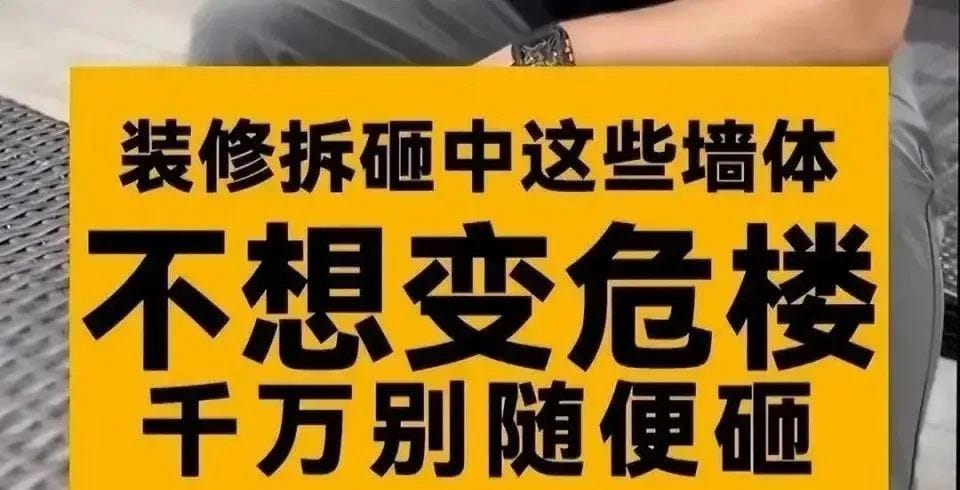Welcome to RealTime Mandarin—a multimedia resource to immerse you in the latest Chinese language trends, inspire you to practice and improve your Mandarin every week, and empower you to communicate with confidence.
Subscribe now to get the next issue straight to your inbox!
Over 240 families living in a 31-story building in the city of Harbin were urgently evacuated from their homes last weekend.
It was caused by renovations on the third floor where the load-bearing wall was demolished. That night, the building cracked up to the 15th floor, and the next day, the cracks appeared up to the 21st floor.
起因是三层装修改造,将承重墙砸毁,当天晚上,楼体开裂到15层,第二天,裂缝最高出现到21层
This “aggressive refurbishment” (暴力改造 bàolì gǎizào) is not uncommon in China, with similar cases in Hangzhou and Guangzhou recently.
A resident of Guangzhou New World told the media that on March 31 he realised there was an unusual noise coming from the lower floor, he discovered that the load-bearing walls of the building had been demolished.
广州新世界业主向媒体报料称,2023年3月31日,突然发现楼下住户装修声音异常,便下楼沟通。到现场后发现,屋内的承重墙已经被拆掉了。
There’s a mix of new and old language in the discussions.
One writer evokes lines from the Dù Fǔ 杜甫 poem, The Hut Was Ruined in the Autumn Wind (茅屋为秋风所破歌 máo wū wèi qiū fēng suǒ pò gē):
Where can I get a well-built house with thousands of spacious rooms that can shelter all the world’s poor scholars and make them happy?
安得广厦千万间,大庇天下寒士俱欢颜,风雨不动安如山。 [2]
Written in 761, in this poem Du Fu expresses the pain of losing his home in a storm. Zoe discusses this more in the podcast.
Going deeper into Chinese history, the same writer recalls lines from the Book of Han (汉书), around 2000 years old, about the importance of having a home.
We explore this and much below!
Favourite Five
1. 危房 wēi fáng
dangerous building; dilapidated building
因为家里老的老,小的小,在宾馆没法照顾他们的饮食,只能回到“危房”里料理 - There are old people and kids in the family. The hotel does not have suitable food for them. So the only option is to first go back to the dangerous building to cook for them. [2]
Related: 危及 wéi jí - endanger
2. 傻X shǎ chā
idiot
一个傻X租户,一支愚蠢的装修队,对该小区B栋2单元3层进行“暴力改造” - One idiotic tenant and a stupid refurbishment team carried out an "aggressive renovation" on the 3rd floor of Unit 2, Building B. [2]
Note: Internet slang for 傻逼 shǎ bī to avoid censors.
3. 安土重迁 ān tǔ zhòng qiān
be unwilling to leave one's hometown
安土重迁,黎民之性;骨肉相附,人情所愿 - Attached to the land and unwilling to move — this is the nature of the common people. Interdependent among relatives and reluctant to leave them — this is a shared feeling.
Note: This is a 16-character phrase from the Book of Han (汉书 hànshū), a history of China finished in 111 AD. Zoe shares more in the podcast.
4. 睁一眼,闭一眼 zhēng yì yǎn, bì yì yǎn
turn a blind eye
在砸墙的时候虽然有很大动静,物业公司往往都睁一眼闭一眼 - Although there can be a lot of noise when the wall is removed, the property management company often keeps one eye open and the other eye closed. [1]
More: Learn more about the history of this phrase in the The China Project Phrase of the Week.
5. 三过家门而不入 sān guò jiā mén ér bú rù
passing by one’s home and unable to enter
望着已经开裂的单元楼,他们再恋恋不舍,也只能是“过家门而不入” - Looking at the cracked building, they can no longer return home, no matter how much they want to do so. [2]
Background: From the fable about Yu the Great (大禹 Dà Yǔ), a legendary king famed for his introduction of flood control and the establishment of China’s first dynasty, the Xia (夏 Xià). The legend tells the story of "Great Yu Controls the Waters" (大禹治水 dà yǔ zhì shuǐ), during which Yu passes by his home three times and does not enter because he is determined to build the flood control system first.
Consuming the Conversation
Useful words
6. 私自 sī zì
do something without permission
私自打通了一部分承重结构 - A part of the load-bearing structure was removed without permission. [1]
Related: 擅自 shàn zì - unorthorised
7. 包庇 bāo bì
cover up, shield
有些物业公司是在协助或者包庇业主进行违法施工的 - Some property management companies help residents with illegal construction or condone such act. [1]
8. 扎心 zhā xīn
heartbroken
就在大家焦急等待处理结果的时候,后续却迎来了更加扎心的一幕 - While everyone was anxiously waiting for the results, a more heart-wrenching scene followed. [2]
9. 挠头 náo tóu
scratching one’s head; confused
听到自家单元楼,有人砸承重墙,刘女士和她的丈夫急得直挠头 - Ms. Liu and her husband scratched their heads helplessly when they heard that someone smashed the load-bearing wall in their apartment building. [2]
10. 悲凉 bēi liáng
desolate
言语间有一抹无奈,又有一丝悲凉 - There is a touch of helplessness in the words, and a touch of sadness. [2]
More: 一抹 yì mǒ - a touch of
11. 兜底 dōu dǐ
back-up; plan B
他们是受害者,但他们不是要谁给他们兜底,而是需要一个答案 - They are victims, but they don't want someone to give them an alternative. They need an answer. [2]
12. 奇观 qí guān
spectacle
居然影响到全楼240多户居民的正常生活与安全,这可以说是现代都市“奇观” - It actually affects the normal life and safety of more than 240 households in the whole building. It’s a new kind of "spectacle" of a modern city. [5]
Note: Used ironically here.
Three-character phrases
13. 避风头 bì fēng tou
keep a low profile
物业公司就会通知业主避避风头,然后再继续施工 - The property management company will ask the home-owner (who carries out the illegal construction) to temporarily stop it before continuing the construction. [1]
14. 倒血霉 dǎo xiě méi
have bad luck















